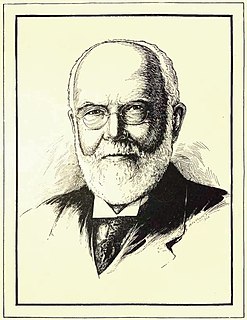Related Research Articles

The National Post is a Canadian English-language newspaper. The paper is the flagship publication of Postmedia Network, and is published Tuesdays through Saturdays. It was founded in 1998 by Conrad Black. Once distributed nationally, it later began publishing a daily edition in the provinces of Ontario, Quebec, Alberta and British Columbia, with only its weekend edition available in Manitoba and Saskatchewan. As of 2006, the Post is no longer distributed in Canada's Atlantic provinces and the territories.
Israel Harold "Izzy" Asper, was a Canadian tax lawyer and media magnate. He was the founder and owner of the defunct TV and media company CanWest Global Communications Corp and father to its former CEO and President Leonard Asper, former director and corporate secretary Gail Asper, as well as former Executive Vice President David Asper. He was also the leader of the Manitoba Liberal Party from 1970 to 1975 and is credited with the idea and vision to establish the Canadian Museum for Human Rights.

The National Capital Commission is the Canadian Crown corporation responsible for development, urban planning, and conservation in the National Capital Region, including administering most lands and buildings owned by the Government of Canada in the region. The NCC reports to the Parliament of Canada through whichever minister in the Cabinet of Canada is designated responsible for the National Capital Act, currently the Minister of Canadian Heritage.
Canwest Global Communications Corporation, which operated under the corporate name Canwest, was a major Canadian media conglomerate based in Winnipeg, Manitoba, with its head offices at Canwest Place. It held radio, television broadcasting and publishing assets in several countries, primarily in Canada.
Postmedia News is a national news agency with correspondents in Canada, Europe, and the United States and is part of the Canadian newspaper chain owned by Postmedia Network Inc.

The National Capital Region, also referred to as Canada's Capital Region and Ottawa–Gatineau, is an official federal designation for the Canadian capital of Ottawa, Ontario, the neighbouring city of Gatineau, Quebec, and surrounding urban and rural communities. The term National Capital Region is often used to describe the Ottawa–Gatineau metropolitan area, although the official boundaries of the NCR do not precisely correspond to the statistical metropolitan area.

The Ottawa Citizen is an English-language daily newspaper owned by Postmedia Network in Ottawa, Ontario, Canada.

The Sudbury Star is a Canadian daily regional newspaper published in Sudbury, Ontario. It is owned by the media company, Postmedia.

The Daily News was a tabloid newspaper in Halifax, Nova Scotia, that was published from 1974 until ceasing operations in February 2008.

The Calgary Herald is a daily newspaper published in Calgary, Alberta, Canada. Publication began in 1883 as The Calgary Herald, Mining and Ranche Advocate, and General Advertiser. It is owned by the Postmedia Network.

The North Bay Nugget is a newspaper publishing a print edition Tuesday through Saturday, accompanied by an online digital presence, in North Bay, Ontario, Canada. The paper is currently owned by Postmedia.
The Ottawa Journal was a daily broadsheet newspaper published in Ottawa, Ontario, from 1885 to 1980.
Edward Greenspon is a Canadian journalist who joined Bloomberg News in January 2014 as Editor-at-Large for Canada after four years as vice president of strategic investments for Star Media Group, a division of Torstar Corp. and publisher of the Toronto Star. Before that, he was the Editor-in-Chief of The Globe and Mail newspaper, based in Toronto, Ontario, Canada for seven years. In 2002, he assumed the position at a turning point in the paper's history, and, during his tenure, he instituted several sectional revamps, launched new web sites and maintained circulation levels. On May 25, 2009, he was replaced by John Stackhouse.

The Montreal Gazette, formerly titled The Gazette, is the only English-language daily newspaper published in Montreal, Quebec, Canada. Three other daily English-language newspapers shuttered at various times during the second half of the 20th century. It is one of the French-speaking province's last two English-language dailies; the other is the Sherbrooke Record, which serves the anglophone community in the Eastern Townships southeast of Montreal.

William Southam was a Canadian newspaper publisher.
The Royal Commission on Newspapers, popularly known as the Kent Commission, was a Canadian Royal Commission chaired by Tom Kent. It was created in 1980 in response to growing concerns over concentration of media ownership in Canada. The Commission's final report was delivered in 1981.
There were five important periods in the history of Canadian newspapers' responsible for the eventual development of the modern newspaper. These are the "Transplant Period" from 1750–1800, when printing and newspapers initially came to Canada as publications of government news and proclamations; followed by the "Partisan Period from 1800–1850," when individual printers and editors played a growing role in politics. The "Nation Building Period from 1850–1900," when Canadian editors began the work of establishing a common nationalistic view of Canadian society. The "Modern period" from 1900 to 1980s saw the professionalization of the industry and the growth of chains. "Current history" since the 1990s saw outside interests take over the chains, as they faced new competition from the Internet.
Kirk LaPointe is a Canadian journalist and politician.
James Bruce Ross Phillips, known professionally as Bruce Phillips, was a Canadian television journalist and civil servant. He was best known as the Parliament Hill bureau chief of CTV News, and host of the political talk show Question Period, from 1968 to 1985. As host of Question Period, he was particularly noted for his year-end interviews with Prime Ministers.
Karin (Duncan) Howard is a lawyer and politician. She represented Mooney's Bay Ward on Ottawa City Council, covering the south central area of the City.
References
- ↑ "Russell Andrew Mills". CNN . Retrieved June 2, 2014.
- 1 2 3 4 "Minister Baird Announces Reappointment of the Chair of the National Capital Commission Board of Directors". News Releases 2012. Foreign Affairs, Trade and Development Canada. 13 April 2012. Retrieved 12 April 2014.
- 1 2 Wahl, Andrew (18 March 1998). "Capital Offensive". Ryerson Review of Journalism. Archived from the original on 13 April 2014. Retrieved 12 April 2014.
- ↑ "Citizen publisher fired after critical coverage of PM". CBC News. June 18, 2002.
- ↑ Staff (1 Oct 2002). "Fired Canadian publisher superhero of free press". Global Journalist - Missouri School of Journalism. Archived from the original on 1 March 2012. Retrieved 12 April 2014.
- ↑ "The prime minister had nothing to do...with the termination of Russ Mills (interview) - Policy Options". Policy Options. Retrieved 2018-05-30.
- ↑ Simon, Bernard (June 24, 2002). "Publisher's Ouster Stirs New Outcry on Canadian Chain". The New York Times . Retrieved June 2, 2014.
- ↑ Gasher, Mike (2005). Converging Media, Diverging Politics: A Political Economy of News Media in the United States and Canada. ISBN 9780739113066.
- ↑ "Asper Nation" (PDF).
- 1 2 "Fired publisher named Nieman Fellow". Harvard Gazette . August 22, 2002. Archived from the original on January 13, 2008.
- ↑ Leslie Regan Shade; David Skinner; James Robert Compton; Mike Gasher (January 2005). "5: Aspergate: Concentration, Convergence and Censorship in Canadian Media". Converging Media, Diverging Politics: A Political Economy of News Media in the United States and Canada. Lexington Books. pp. 102–105. ISBN 0739108271 . Retrieved 13 April 2014.
- ↑ "Former Citizen publisher to be new NCC chairman". Ottawa Citizen. 3 May 2007. Archived from the original on 19 June 2014. Retrieved 12 April 2014.